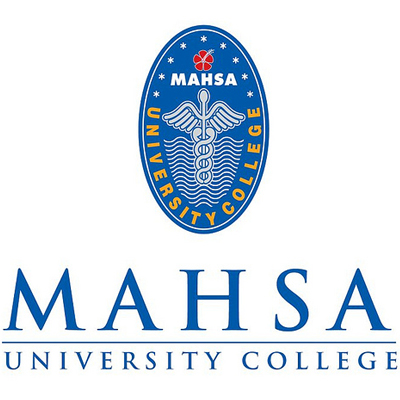Bachelor in Biomedical Sciences
- Field Of Study:
- Health, Medicine & Welfare
- Level Of Study:
- Undergraduate
- Course Subject:
- Biomedical Science
- Course Intake:
- September
Introduction
Few are aware that about 70-80 % of all medical decisions are based on laboratory test results of patients. The discipline related to the testing of human tissues has been called pathology or, more recently, laboratory medicine.
Both medically qualified pathologists and others who are scientifically qualified work in the laboratory. The latter include degree-holding laboratory scientists such as clinical biochemists and medical microbiologists and biomedical scientists and diploma level medical laboratory technologists.
Each semester is 6 months long with 14 contact weeks of teaching. Instruction is by way of lectures and laboratory practicals and is conducted entirely in English.
MAHSA University offers the following programmes for the training of laboratory personnel:
- The BSc (Hons) in Biomedical Sciences.
- The Diploma in Medical Laboratory Technology (Dip. MLT).
Program Outline
Degree | KPT/JPS(KA9557)06/15
Students are exposed to the same core subjects as in the diploma programme: clinical biochemistry, pathology, medical microbiology, molecular biology, transfusion sciences and haematology.
Practical training is provided in the medical laboratory of hospitals and private laboratories by way of attachments.
Research training is provided by way of a research project in their final year.
Entry Requirements
Degree
- SPM : 5 credits, with 3 credits from either; Biology, Physics, Maths, Chemistry or English.
- STPM or A’ Levels or Matriculation : Min CGPA 2.50 for Biology/ Physics and Chemistry.
- Foundation in Science from recognised IPTA / IPTS with 60% aggregate for three subjects including Biology/ Physics and Chemistry.
- Diploma in related field:1) min CGPA 2.75 OR2) CGPA less than 2.75 with 3 yrs working experience
- South Australian Matriculation : Score 12 for three subjects including Biology/ Physics and Chemistry.
- UEC : 5Bs including Biology/ Physics an Chemistry.
- UNSW HSC/ New Zealand Bursary/ American High School with Advance Placement (AP) : 60% aggregate for three subjects including Biology/ Physics and Chemistry.
- IB : Min Score 24 for three subjects including Biology/ Physics and Chemistry.
- CPU/CIMP/ Ontario Secondary School Diploma/ Western Australian Curriculum Council/ HSC-Sydney Australian : 60% aggregate for 3 subjects including Biology/ Physics and Chemistry.
Intakes
- Currently there is only one intake a year in September.
Career Prospects
- Both the BSc Biomedical Sciences degree and the Diploma in MLT graduates are broad-based and a stepping stone to many career paths.
- Most holders of either qualification usually work in hospital laboratories with the Biomedical Sciences usually holding a supervisory position.
- Some technologists specialise within the laboratory as cytotechnologists or phlebotomists.
- Diploma and degree holders may also work in research institutions or in the research departments of universities.
- In addition, the training also qualifies diploma holders to work in sales and marketing of companies selling diagnostic products.
- Biomedical Sciences graduates are also employable in the pharmaceutical industry, the in vitro diagnostics industry, research laboratories of universities and research institutions and private bodies.
- The diploma is also a route for entry into a degree programme such as the biomedical sciences programme. MLTs then progress to higher degrees such as MSc and PhD. Holders of higher degrees may work in hospital laboratories or they can engage in teaching or research.
- As laboratories are now business centres and both the Diploma in MLT and Biomedical sciences. Degree holders may have progressed to acquire MBAs to hold managerial positions.
Source :MAHSA University
